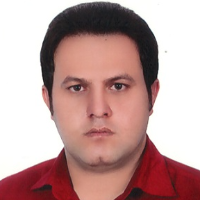Effect of different speeds of mental imagery on basketball dribbling performance in young women
Imagery is a cognitive process that may play an important role in the planning and execution of movements and actions and in many cases it can be used as a tool for learning skills and retraining movements. The purpose of this study was to investigate the effect of different speeds of mental imagery on basketball dribbling performance in the young women.
the research method was semiexperimental which was performed with pretest-posttest design. 40 female students of Shahid Chamran University with average of age (22+1/12) years were selected by purposive sampling and assigned in one of four groups: (low-speed imagery, real-peed imagery, rapid-speed imagery and control without imagery). After performing basketball dribbling skill in a pretest, the subjects of experimental group performed four consecutive days of imagery training and then performed the same skill.
The results showed that all groups improved in their performance except control group (p ≤ 0/05). But with regard to the effect size, the best performance belongs to the low-speed imagery and real-peed imagery group.
we conluded that it is better to use low-speed imagery and real-peed imagery when learning a new task and in the novice.
-
Psychometric Properties of Persian Version of the Self- Evaluation of Teacher Effectiveness Questionnaire in Physical Education
*, Seyed Mohamadreza Mousavi, Hesam Ramezanzadeh, Bita Arabnarmi
Journal of Sport Management and Motor Behavior, -
Optimizing Motor Learning in Teenage Girls through Autonomy Support, Enhanced Expectations, and External Focus of Attention: Testing the OPTIMAL Theory of Motor Learning
Fatemeh Velayati, Seyyed Mohammadreza Mousavi, Adeleh Ahmadinejad, *
Journal of Sports Psychology, -
The Effectiveness of Physical Activity on Mental Health and Mindfulness in Veterans and Disabled
*, Ali Asghar Arastoo, Shahla Zahednejad, Nasrin Teymoori, Mitra Derakhshesh
Journal of Motor Control and Learning, Winter 2022 -
The effect of transcranial Direct Current Stimulation on anxiety in Veteran and Disabled Athletes
Ali Asghar Arastoo, Shahla Zahednajad *, , Saeed Alboghebish
Medical Journal of Mashhad University of Medical Sciences,




